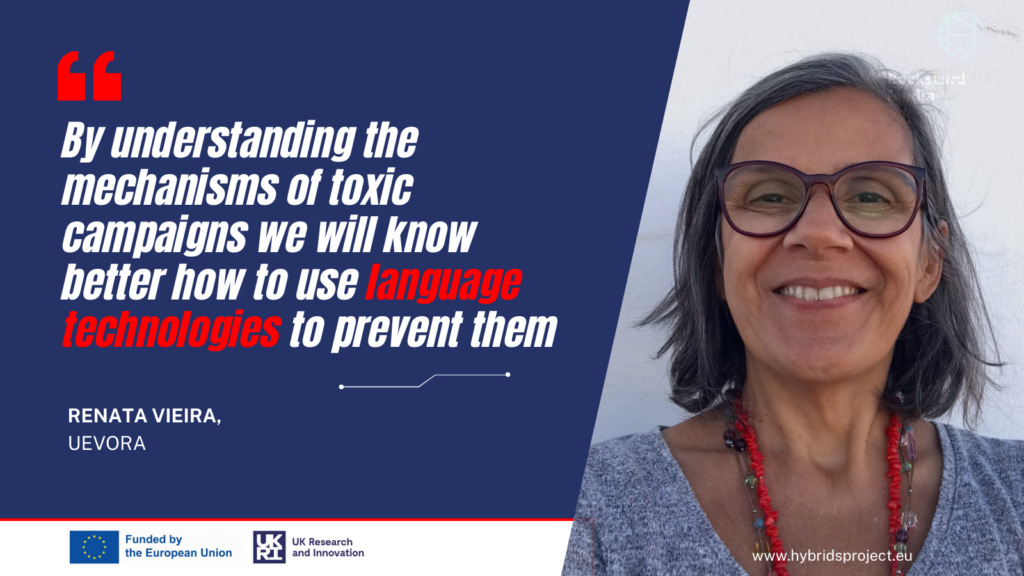By Maria Campins, Newtral
Renata Vieira is an integrated member and principal researcher at the University of Évora (Portugal), which she represents in HYBRIDS, an acronym for Hybrid Intelligence to monitor, promote and analyse transformations in good democracy practices. Within this project, she will lead an analysis of political propagation campaigns on social media platforms.
The initiative groups top 14 institutions collaborating to promote different approaches based on a comprehensive analysis of public discourse on crucial global issues, such as health, the climate crisis, European scepticism or immigration, which will take into account both traditional media and content published through social networks.
Vieira has been working at the University of Évora since December 2019 with the aim of developing interdisciplinary research in the area of Digital Humanities. She has focused in the areas of Computational Linguistics, Artificial Intelligence, Knowledge Representation, and Semantic Web.
How would you define Digital Humanities?
The area of Digital Humanities is a movement towards the employment of new methods in Humanities research, but also an area concerned with the analysis of the impact of digital transformation on human societies.
How is hybrid intelligence important to fight misinformation?
Hybrid intelligence combines powerful computing techniques, developed on different traditions, statistical and symbolic, for the analysis of texts. Misinformation is a big challenge that requires different approaches, one based on a logical, formal observation of language, and the other based on statistical methods applied to high volumes of data.
How do social sciences and computer science converge in the academic field? What challenges do you face in your research?
Computer science is revolutionizing human social practices, these are areas that must dialogue to make this revolution alert to its impacts. In my research, I face the problem of communication between humans and computers, humans and humans using computers, and computers with computers, where different systems must establish common grounds. One way to deal with these communications challenges is to represent knowledge in a more structured way, by using ontologies and providing semantic models to knowledge and language employed in specific domains. These semantic models are difficult to build and must be produced considering social, and community practices and understanding.
Which problems do you want to solve with the PhD assigned through the project?
The problem in general is the fast large spreading of toxic campaigns, with an understanding of such mechanisms, we will know better how to use language technologies to prevent them.
What do you aim to achieve with HYBRIDS?
The important aspect of the project is the creation of a network of researchers and students who will be involved in interdisciplinary questions, important areas are computer, social, and human language sciences. Besides tackling the problem of disinformation, in the whole project underlies the notion of how to employ current technologies aiming at the social good, thus promoting human well-being.

